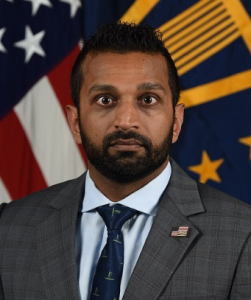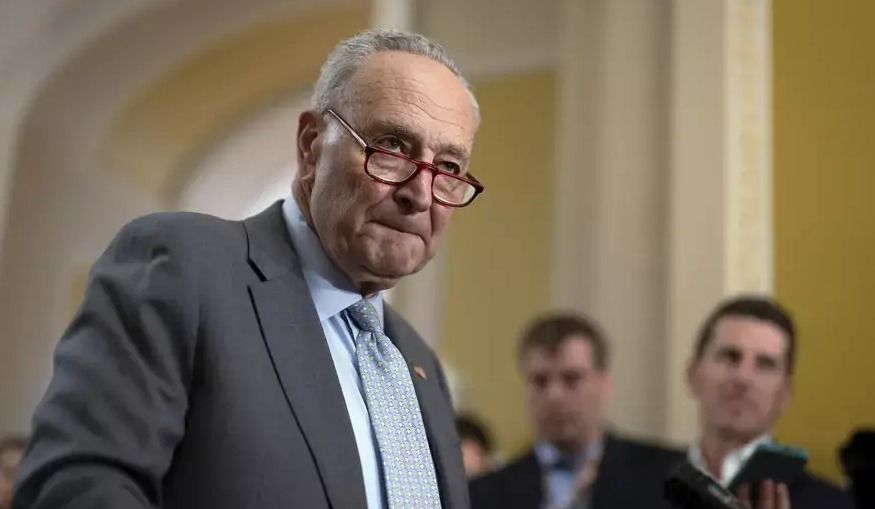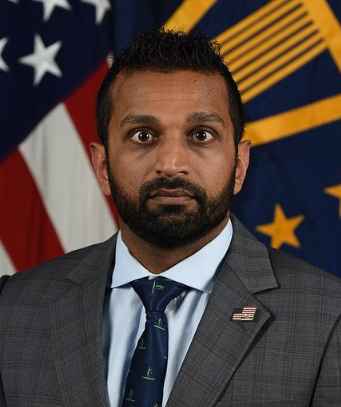NOTE:VIDEO AT THE END OF ARTICLE.
Senator Jeanne Shaheen’s Decision Not to Seek Reelection: A Detailed Analysis of the 2026 Senate Landscape
On Wednesday, New Hampshire’s senior U.S. Senator Jeanne Shaheen (D–NH) stunned political observers by announcing that, after “careful consideration,” she will not seek a third six-year term in the Senate in 2026. In a succinct video message released on social media, Shaheen—one of the most consistently successful Democrats in a swing state—cited her unwavering commitment to public service but explained that the time was right for her to step aside. While she emphasized she is “not retiring” from political engagement and intends to continue advocating for Democratic priorities as a private citizen, her departure instantly transforms New Hampshire’s Senate contest into an open‑seat battleground.
This article provides a comprehensive, professional rewrite and expansion of the initial report, exploring:
Senator Shaheen’s Announcement and Rationale
Shaheen’s Legislative Career and Electoral History
New Hampshire’s Political Profile and Electoral Trends
Implications for Senate Minority Leader Chuck Schumer’s Agenda
The 2026 Senate Map: Opportunities and Challenges for Both Parties
Potential Republican Contenders in New Hampshire
Democratic Senatorial Campaign Committee’s (DSCC) Strategic Calculus
Parallel High‑Profile Races: Georgia’s Jon Ossoff and Michigan’s Gary Peters
Cook Political Report Ratings and Forecasts
Broader Significance of High‑Profile Senate Retirements
Next Steps: Candidate Recruitment, Primaries, and Fundraising
Conclusion: A Pivotal Moment for Senate Control
Together, these sections will span the policy, political, and procedural dimensions of Senator Shaheen’s decision and its ripple effects across the 2026 midterm battlefield.
1. Senator Shaheen’s Announcement and Rationale
At approximately 10 a.m. Eastern Time on [Date], Senator Jeanne Shaheen posted a two‑minute video to her official social‑media channels. Addressing her constituents directly, she said:
“I ran for public office to make a difference for the people of New Hampshire. That purpose has never—and will never—change. But today, after careful consideration, I’m announcing that I have made the difficult decision not to seek reelection to the Senate in 2026. I will continue to fight for justice, opportunity, and security for every Granite Stater, even outside of elected office.”
Key elements of Shaheen’s statement included:
Emphasis on Public Service: She framed her tenure as motivated by service rather than ambition, a refrain that has characterized her political style since first assuming statewide office in 1996.
“Not Retiring,” but Transitioning: By explicitly clarifying that she will “continue championing Democratic causes as a private citizen,” Shaheen sought to pre‑empt any suggestion that she might withdraw entirely from civic engagement or national discourse.
Gratitude to Constituents and Colleagues: The Senator thanked New Hampshire voters for their trust and referenced her collaborations with colleagues in both parties on issues such as rural health care, veterans’ affairs, and clean‑energy development.
Within minutes, national and local media outlets began reporting on her decision. Political analysts noted that while Shaheen’s popularity in New Hampshire has remained relatively stable—typically polling at or above 55 percent approval—she had narrowly avoided defeat in 2020, securing reelection by just a 53 percent to 45 percent margin. That close call, combined with her advancing age (she will be 79 at the end of her current term), likely influenced her decision not to embark on a taxing campaign.
2. Jeanne Shaheen’s Legislative Career and Electoral History
2.1 Early Political Career
New Hampshire Governor (1997–2003): Shaheen made history in 1996 by becoming the first woman ever elected Governor of New Hampshire, serving three two‑year terms. Her gubernatorial tenure earned praise for fiscal restraint—earning a reputation as “Fiscal Hawk”—and for championing education and health‑care initiatives.
Senate Tenure (2009–Present): Elected to the U.S. Senate in 2008, Shaheen succeeded Republican John E. Sununu. Since then, she has focused on issues critical to New Hampshire, including rural broadband expansion, veterans’ benefits, and clean‑energy research at the state’s national labs.
2.2 Committee Assignments and Legislative Achievements
Over her three terms, Senator Shaheen has held key committee roles:
Foreign Relations Committee: As Ranking Member (2021–2025) and member since 2009, Shaheen has been a leading voice on NATO support, Middle East policy, and global climate diplomacy.
Armed Services Committee: She has advocated for the Portsmouth Naval Shipyard and for robust funding to the NH Air National Guard, securing resources for local defense contractors.
Small Business and Entrepreneurship Committee: Shaheen has co‑sponsored legislation reducing regulatory burdens on small manufacturers and introducing grant programs for rural entrepreneurs.
Agriculture, Nutrition, and Forestry Committee: She has championed dairy‑state farmers and expanded SNAP benefits for low‑income families.
2.3 Electoral Performance
2008: Defeated incumbent Republican John Sununu, 51 percent to 48 percent.
2014: Narrow reelection against former Massachusetts Senator Scott Brown, 51 percent to 48 percent, in a race that cost $46 million—the tenth‑most costly Senate contest that cycle.
2020: Beat Republican Corky Messner, 53 percent to 45 percent, in one of the tighter Democratic hold‑on races in that year’s Democratic‑leaning environment.
Shaheen’s ability to win in a small state that leans Democratic at the federal level—voting for the Democratic presidential nominee in every election since 2004—demonstrates her appeal across party lines, particularly among independents and moderate Republicans.
3. New Hampshire’s Political Profile and Electoral Trends
3.1 Voter Registration and Partisan Lean
Voter Registration (2025 data): 400,000 Democrats (35 percent), 300,000 Republicans (26 percent), 440,000 undeclared/independent (39 percent).
Presidential Vote: In 2020, Joe Biden carried New Hampshire by 7 points; in 2016, Hillary Clinton won by only 0.4 points.
Senate and Gubernatorial Trends: While Democrats have held both Senate seats since 2008, the Governor’s office is currently occupied by Republican Chris Sununu (no relation to John Sununu), who won reelection in 2024 with 54 percent.
3.2 The Independent Electorate
New Hampshire’s 39 percent unaffiliated voters make candidate quality and local issues decisive factors. Shaheen’s consistent wins owed much to her personal brand—her retail‑style town‑hall format contrasts sharply with ideologically driven campaigns, enabling her to capture a significant share of independents.
4. Implications for Senate Minority Leader Chuck Schumer’s Agenda
Senate Minority Leader Charles E. Schumer (D–NY) had ambitious but narrow path projections for regaining Senate control in the 2026 midterms. With Democrats defending 23 seats and Republicans 10, Schumer’s strategy depended on:
Holding Vulnerable Seats: New Hampshire, Arizona (especially with controversial Senator Kyrsten Sinema’s independent status), Wisconsin, Pennsylvania, and Ohio.
Flipping Republican Seats: Particularly in North Carolina and potentially in Montana or West Virginia, contingent on candidate strength.
Shaheen’s retirement removes one of the more durable incumbency protections from New Hampshire’s path. While an open Democratic seat in a state that has trended blue at the presidential level still presents favorable terrain, the absence of an entrenched campaigner like Shaheen elevates the risk of a GOP pickup.
5. The 2026 Senate Map: Opportunities and Challenges for Both Parties
5.1 Democratic‑Held Seats up in 2026
Arizona (Sen. Mark Kelly)
California (Sen. Alex Padilla) – Safe
Florida (Sen. Rick Scott) – Not up
Georgia (Sen. Jon Ossoff)
Michigan (Sen. Gary Peters retiring)
New Hampshire (Sen. Shaheen retiring)
Pennsylvania (Sen. Bob Casey Jr.)
Wisconsin (Sen. Tammy Baldwin)
5.2 Republican‑Held Seats up in 2026
Alaska (Sen. Dan Sullivan)
North Carolina (Sen. Thom Tillis up for reelection, defeated primary 2026?)
Ohio (Sen. Sherrod Brown up 2026? Actually Brown is Democrat)
Texas (Sen. John Cornyn)
Montana (Sen. Steve Daines)
New Mexico (Sen. Martin Heinrich) – Not up
South Carolina (Sen. Lindsey Graham)
Utah (Sen. Mike Lee)
Wyoming (Sen. Cynthia Lummis)
Note: The above lists are illustrative; actual seat breakdown depends on 2026 cycle. Democrats defend a larger number of competitive seats, placing a premium on candidate recruitment and resource allocation.
6. Potential Republican Contenders in New Hampshire
6.1 Former Senator Scott Brown
After his narrow 2014 Senate loss to Shaheen, Republican Scott Brown relocated to New Hampshire in 2013. Brown’s recent meeting on Capitol Hill with Senate Majority Leader John Thune (R–SD) and former Fox News host turned Defense Secretary Pete Hegseth sparked speculation that he may mount a comeback bid. Brown’s bipartisan profile and moderate‑Republican brand could appeal to New Hampshire independents.
6.2 Governor Chris Sununu
Though currently focused on a third term as governor, popular incumbent Republican Governor Chris Sununu (with approval in the mid‑60s) is frequently mentioned as a formidable Senate candidate. His deep approval, centrist stances on fiscal policy, and high name recognition make him a natural contender if he forgoes a fourth gubernatorial run.
6.3 Other Prospects
Senate President Jeb Bradley: The long‑serving state legislator and former U.S. Representative has statewide recognition and deep GOP ties.
U.S. Representative Annie Kuster: A Democratic incumbent; unlikely challenger for GOP but included to show potential candidate pools.
Activist Jim Rubens: A perennial candidate and conservative activist who narrowly lost the 2014 primary to Brown.
The GOP primary is likely to be competitive, with establishment figures such as Brown and Sununu potentially contesting a more conservative field. The eventual nominee’s ability to unite the party and appeal to independents will be crucial.
7. Democratic Senatorial Campaign Committee’s Strategic Calculus
7.1 Resource Allocation Challenges
With Shaheen’s departure, DSCC Chair Senator Kirsten Gillibrand (D–NY) must decide how to distribute limited campaign dollars and staff among protecting vulnerable incumbents and contesting open seats. Key considerations:
Open‑Seat Investments: Historically, open seats cost 20–30 percent more than races with incumbents, due to name‑ID building, primary contests, and fundraising.
Incumbent Protection: Funding must also shore up Senators like Bob Casey Jr. (PA), Tammy Baldwin (WI), and Mark Kelly (AZ), all facing tough environments.
Fundraising Bandwidth: High‑profile fundraisers—such as those hosted by President Biden, former Presidents Clinton and Obama—may be prioritized for marquee races, leaving fewer events for smaller‑state contests.









